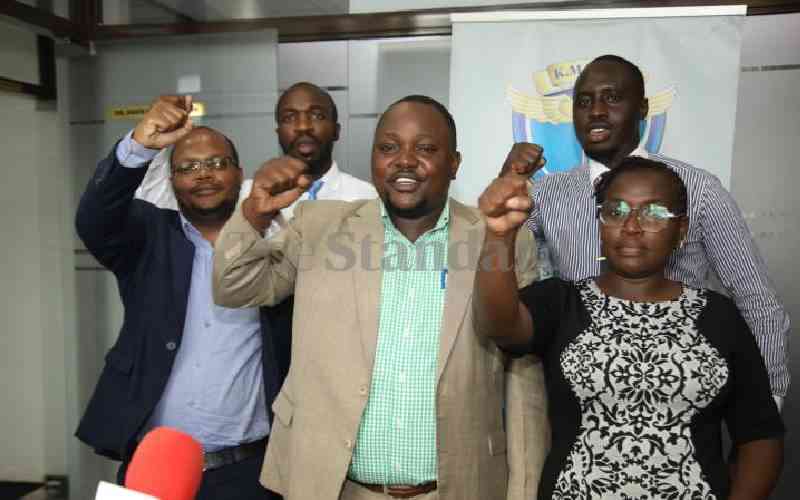A new study has lifted the lid on the puzzle surrounding re-infection of Covid-19 patients after testing negative for the virus.
The study published by Nature Medicine claims that the antibodies which develop as a defence after one gets infected do not last more than three months.
Published on June 18, the study invalidates previous studies that showed antibodies against the virus last for at least a year.
Previous studies indicated that sustained antibody level was maintained for more than two years after the infection.
“Antibody responses in individuals with laboratory-confirmed MERS-CoV (a type of coronavirus) infection lasted for at least 34 months after the outbreak,” reads the study titled Clinical and Immunological assessment of asymptomatic SARS-CoV-2 (the virus that causes Covid-19) infections.
The study notes that recently, several findings characterising adaptive immune responses to SARS-CoV-2 infection have reported that most Covid-19 recovering individuals have detectable neutralising antibodies.
“In this study, we observed that IgG (antibody) levels and neutralising antibodies in a high proportion of individuals who recovered from SARS-CoV-2 infection start to decrease within 2 to 3 months after infection,” states the study.
The study analysed 37 asymptomatic individuals in the Wanzhou District, who were diagnosed using the WHO standard test, confirmed SARS-CoV-2 infections but without any relevant clinical symptoms in the preceding 14 days and during hospitalisation.
The researchers found that of asymptomatic individuals, 93.3 per cent and 81.1 per cent had reduction in IgG (the most common antibody detected against virus and bacteria) and neutralising antibody levels respectively, during the early phase of recovery, as compared to 96.8 per cent and 62.2 per cent of symptomatic patients.
The study deduces that asymptomatic individuals exhibited lower levels of elements of the body immune response.
“These data suggest that asymptomatic individuals had a weaker immune response to SARS-CoV-2 infection,” states the study.
The study conducted in China states that in another analysis of patients on the dynamism of neutralising antibodies in recovering patients, four showed decreased neutralising antibodies six to seven weeks after the onset of illness.
“One mathematical model also suggests a short duration of immunity after SARS-CoV-2 infection. Together, these data might indicate the risks of using Covid-19 ‘immunity passports’ and support the prolongation of public health interventions, including social distancing, hygiene, isolation of high-risk groups and widespread testing,” reads the study.
It further notes that additional studies profiling more symptomatic and asymptomatic individuals are urgently needed to determine the duration of antibody-mediated immunity. “In addition, low levels of anti-viral IgG in asymptomatic patients, who might be more likely to become seronegative, further support the need for timely sero-survey to study the true infection rate,” states the study.
 The Standard Group Plc is a multi-media organization with investments in media platforms spanning newspaper print
operations, television, radio broadcasting, digital and online services. The Standard Group is recognized as a
leading multi-media house in Kenya with a key influence in matters of national and international interest.
The Standard Group Plc is a multi-media organization with investments in media platforms spanning newspaper print
operations, television, radio broadcasting, digital and online services. The Standard Group is recognized as a
leading multi-media house in Kenya with a key influence in matters of national and international interest.











